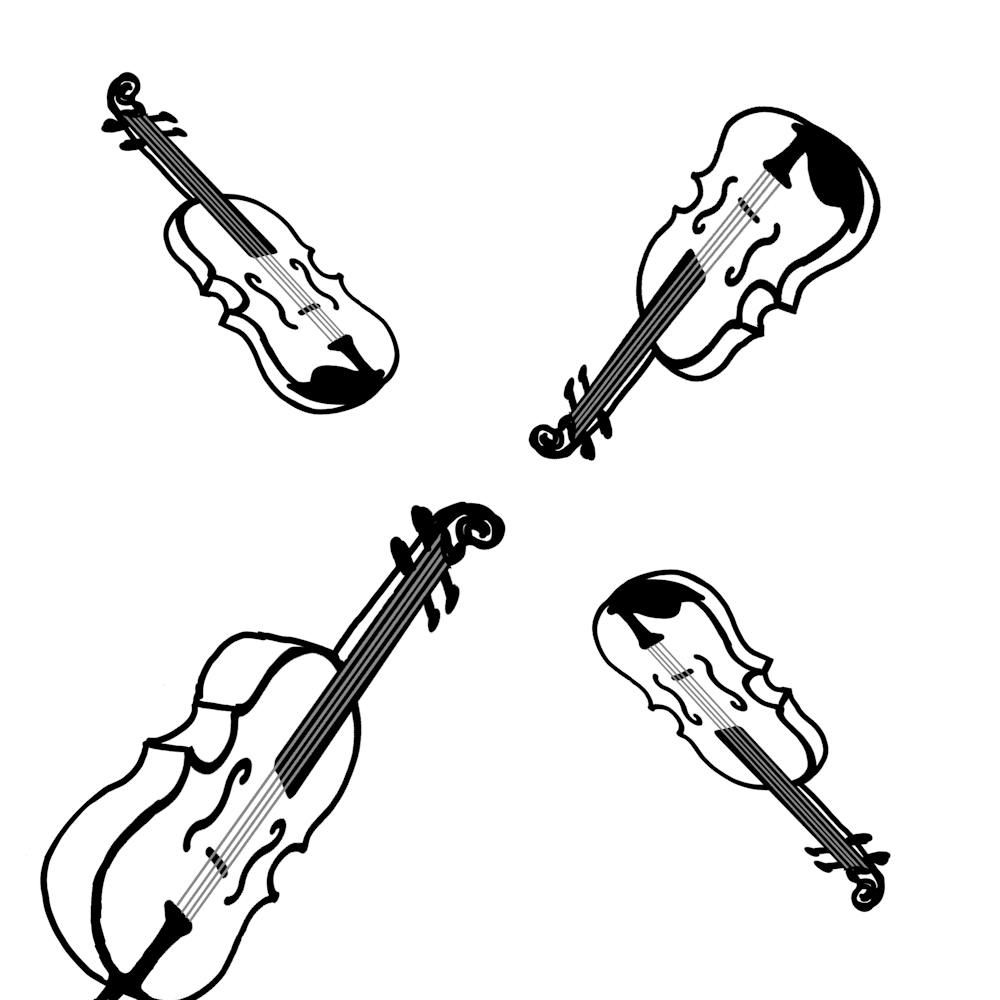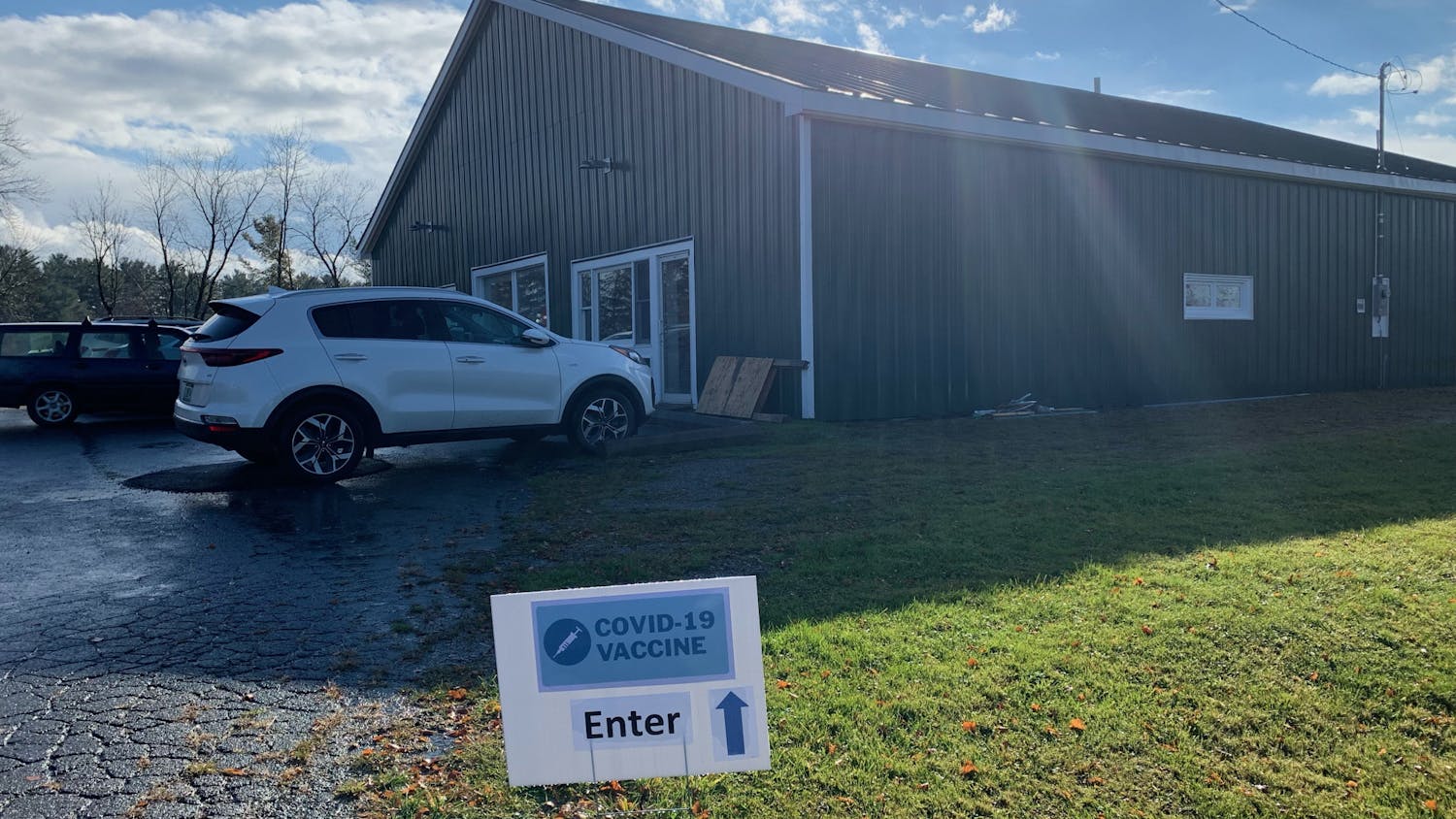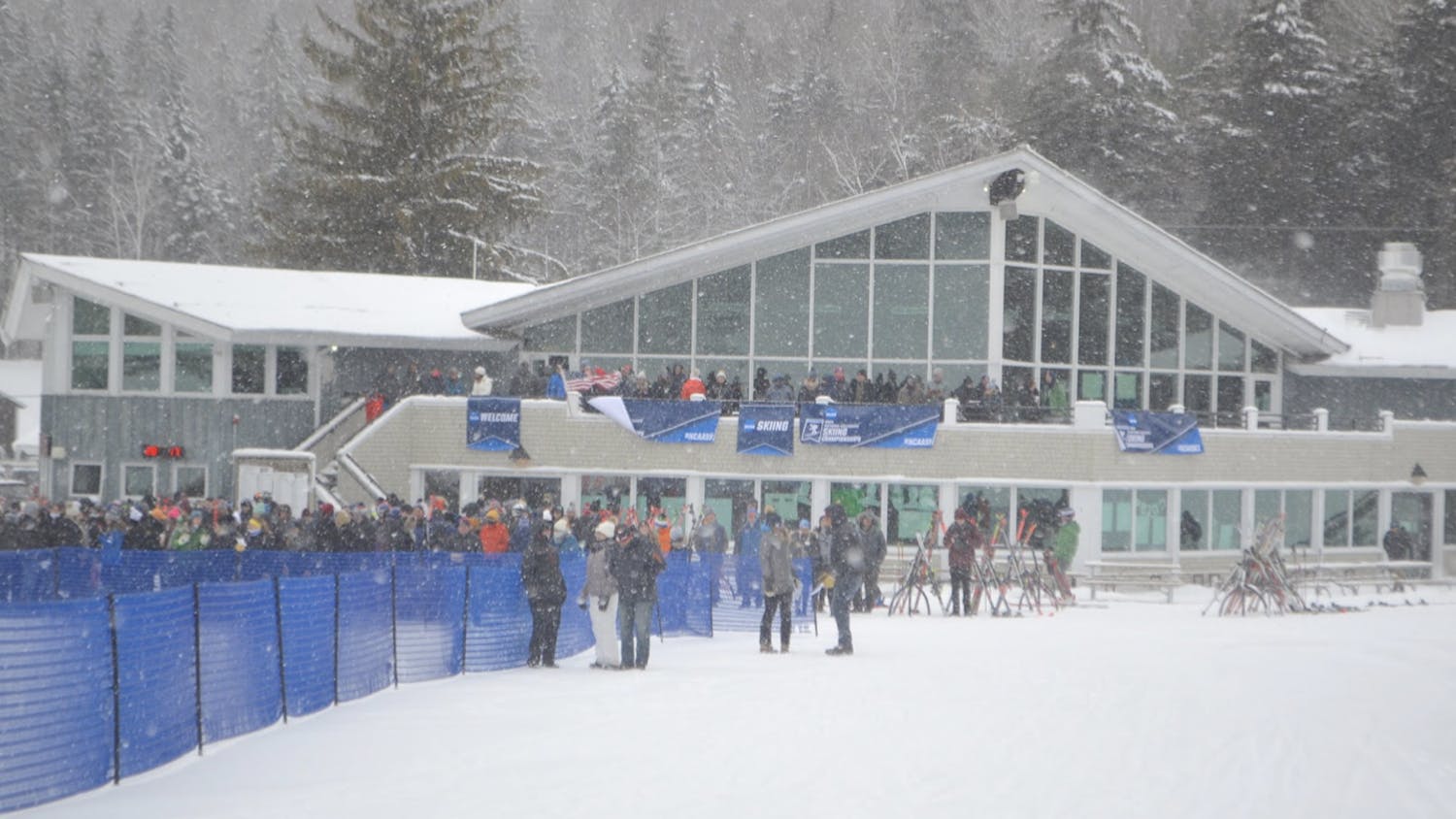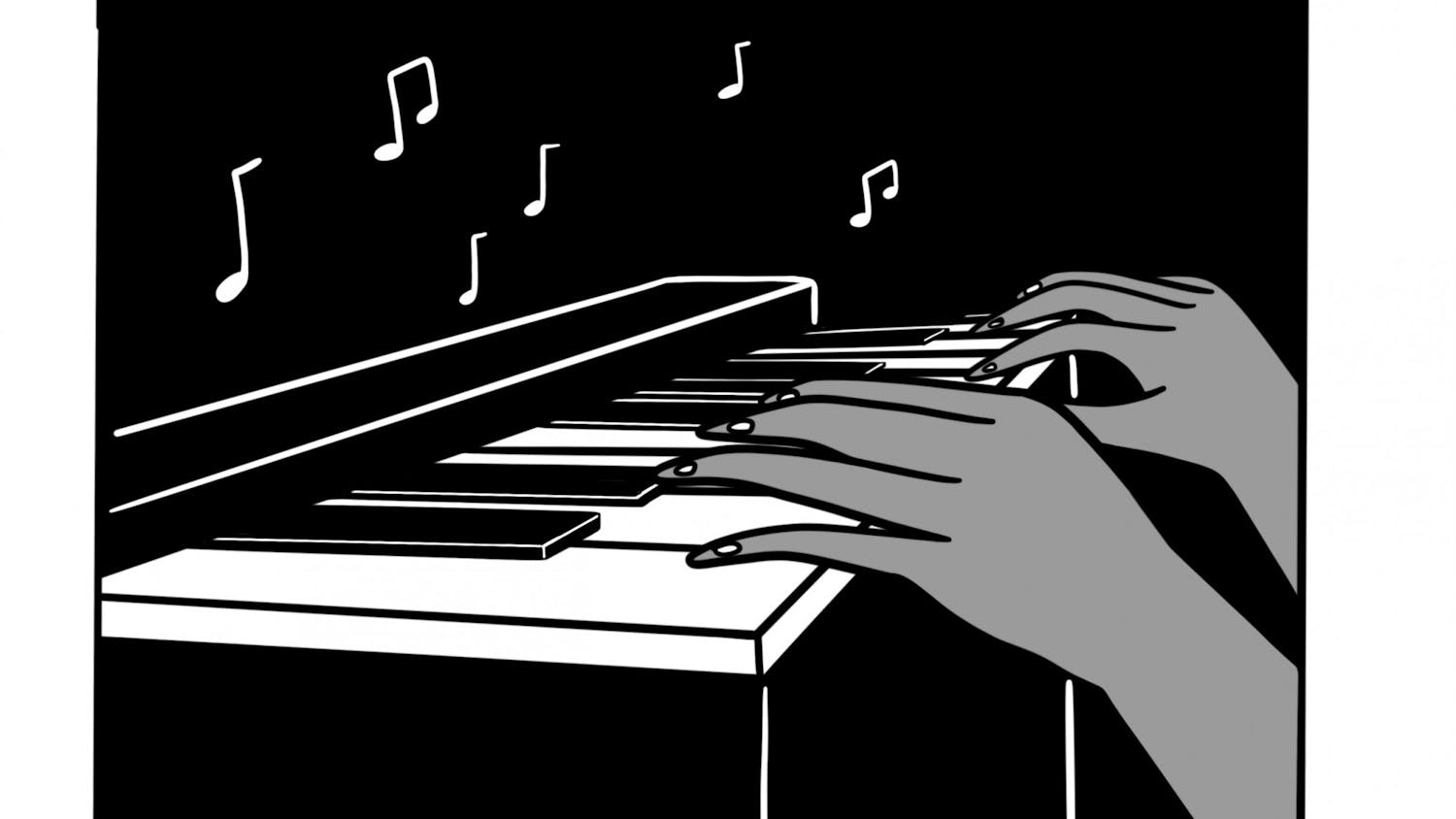Applause. Deafening, thunderous applause resonated through Robinson Hall, as the crowd called for an encore. On Thursday, Nov. 11, the Middlebury Center for the Arts was graced by the presence of the Schumann Quartet and famous chamber musician and Middlebury affiliate artist Diana Fanning. The Schumann Quartet features siblings Erik and Ken Schumann on the violin, their brother Mark on the cello, and Liisa Randalu on the viola. The group stepped proudly onto the stage to perform in what they view as a metaphorical “dropping of masks, a true display of vulnerability.”
“On the stage, all imitation disappears… then you can create a bond with the audience — communicate with it in music,” a note from the Quartet in the program read. Over the course of the night, the quartet played three pieces: Felix Mendelssohn’s Quartet in A Minor, Op. 13, Maurice Ravel’s Quartet in F Major and, joined by Fanning, they played Robert Schumann’s Quintet in E-flat Major, Op. 44.
“There is a reason that people want to hear Mendelssohn, Schumann and Ravel so many years after the music was composed. Their music communicates emotion and meaning at the deepest level,” Fanning said. “People are hungry for beauty in this strange and terrible time we are living through, with Covid-19, political upheaval [and] climate change.”
The three Schumann brothers have been playing together since early childhood. In 2012, they were joined by violist Randalu. “We take things to extremes, to see how far the excitement and our spontaneity takes us,” said Ken Schumann.
The group does not attempt to categorize their sound, approach or style. Fanning has performed numerous times as a concerto soloist with the Vermont Symphony Orchestra, has toured New England as a member of the Ruggieri Chamber Soloists, has been a guest artist with multiple string quartets and now teaches piano at Middlebury.
Mendelssohn’s Quartet in A Minor, Op. 13, was written in 1827, the year Beethoven died. The two events were no coincidence: Beethoven’s influence over Mendelssohn’s work was strongly evident in his work at and around that time. However, Mendelssohn had also fallen in love and decided to write a quartet about what being in love felt like for him. Prior to the publishing of this quartet, he had written a song called “Frage,” or “Question,” published as Op. 9, No. 1. The lyrics, “What I feel can only be understood by someone who feels it with me, and who will stay forever with me,” are interwoven through the four movements. The Quartet’s concert transported the crowd to a 19th century parlor. Their heartbeat-esque staccato made listeners' hearts beat in rhythm. Mendelssohn wrote an ode to love’s beauty while the quartet members played an ode to their love of music.
“The Quartet’s interpretation of the Mendelssohn Quartet in particular was revelatory. The musicianship, the extraordinary attention to detail, the insight and perception they brought to these works were astonishing,” Fanning said. “[They] excel in understanding the style and communicating the soul in every piece they play, no matter who the composer is and what era the piece is from.”
Ravel’s Quartet in F Major was written in 1903 while Ravel was completing his studies at the Paris Conservatory. From the lyrical violin in the first movement to the “vif et agité” — or “lively and agitated” — tones of the third, the Schumann Quartet demonstrated the swiftness of time and its unending movement forward. Yet, during this piece, time seemed to slip away. They entranced listeners in a feeling of timeless emotion. Their playing sounded wistful, heart wrenching and contemplative.
The final piece, the Schumann Quintet in E-flat Major, Op. 44, was written by Robert Schumann in 1842 in only three weeks. This piece was meant as a gift for his wife, Clara, but she was too ill to play the debut of his new masterpiece. 180 years later, the Schumann Quartet and Fanning performed this very piece, bringing drama to the stage in a different sense; this quintet shows the love a husband had for his wife. The romance rang in every note, alternating between a certain sweetness in the onstage unity of the musicians and a vibrant conversation among instruments.
“I love the way they move in sync and look to each other for cues. This interaction brings so much emotion,” Bess Gramling ’23.5, who attended the concert, said.
“You don’t have to know anything about classical music to let it wash over you and to enjoy it at the most basic level of beautiful melodies, dancing or driving rhythms, colorful sound effects and dramatic surprises,” Fanning said. “Music is a language that everyone can understand.”




